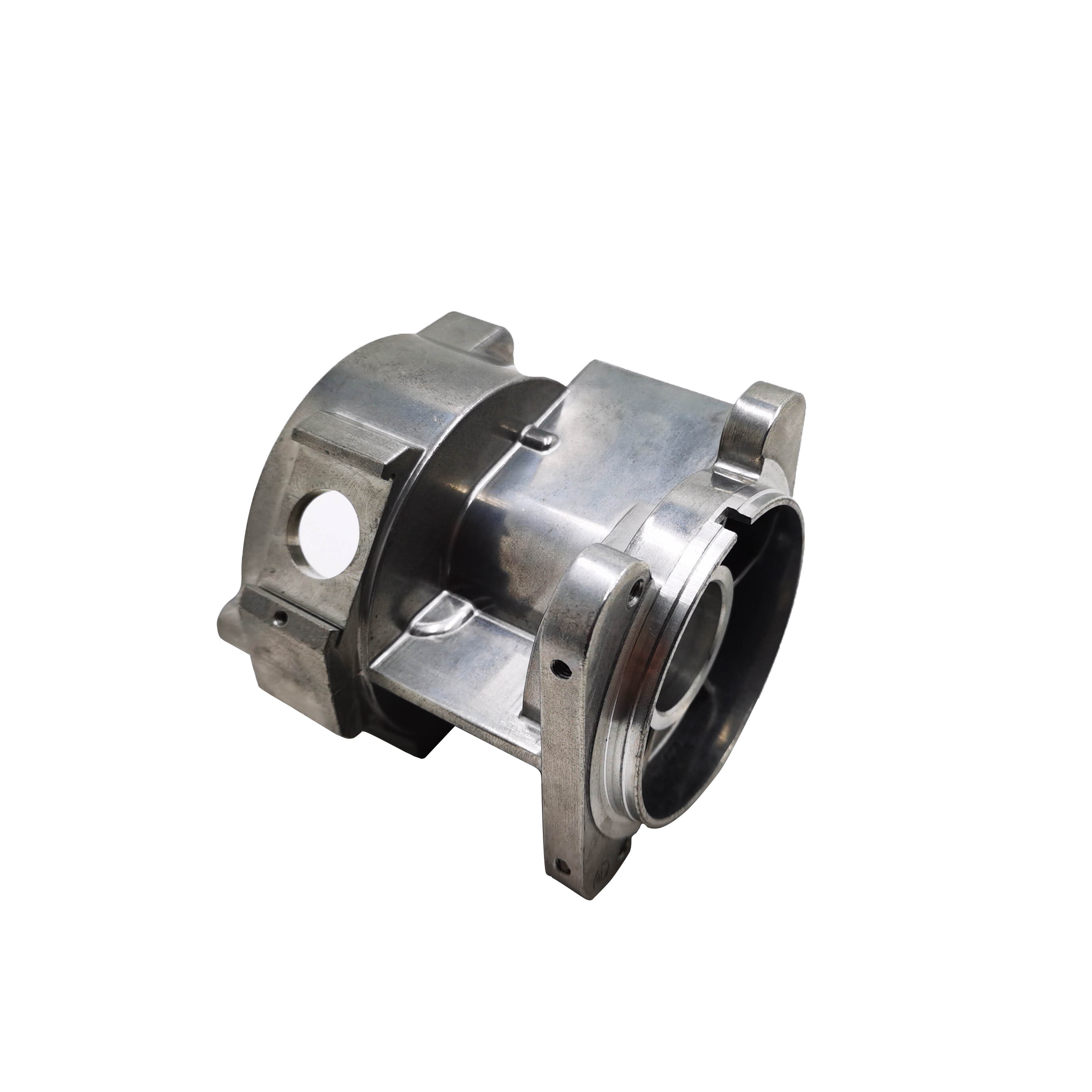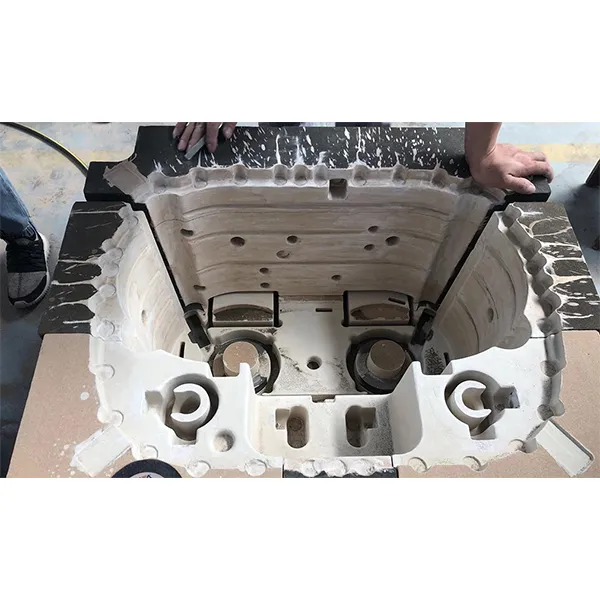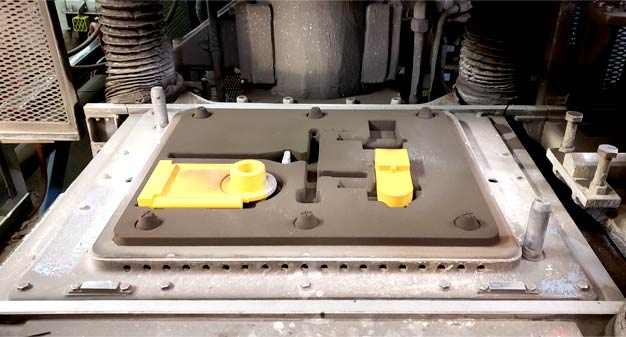Precision aluminum casting solutions that enhance product reliability and performance
A Comprehensive Overview to Selecting the Right Shop Solutions for Your Task Needs
Picking the ideal factory solutions is necessary for the success of any kind of project. Each spreading method-- sand spreading, investment spreading, and die spreading-- has special advantages. Recognizing these choices aids in making notified choices. Material option, production capabilities, and top quality assurance are key variables to consider. Additionally, evaluating prices can affect lasting stability. Precision aluminum casting. What factors should guide this decision-making procedure?
Comprehending the Different Sorts Of Foundry Solutions
While the world of factory solutions may seem facility at first look, understanding the numerous types can substantially improve the production process. Factories usually focus on casting steels, and the major types include sand casting, financial investment casting, die spreading, and centrifugal spreading.
Sand spreading entails creating molds from sand and is excellent for large elements or low-volume manufacturing. Investment spreading, on the other hand, uses high accuracy for elaborate styles, making it ideal for aerospace or clinical applications. Pass away spreading, identified forcibly molten metal into mold and mildews under high pressure, is efficient for automation of smaller parts.
Centrifugal spreading utilizes rotational pressure to disperse liquified steel, yielding solid, cylindrical parts. Each service type has distinct advantages and is chosen based on certain job demands. Recognizing these distinctions enables suppliers to choose the most suitable factory service, eventually boosting performance and item high quality.
Key Elements to Think About in Product Choice
Choosing the proper material for foundry services is a crucial step that influences the overall success of a job. Secret variables in product option consist of mechanical buildings, thermal resistance, and deterioration resistance - aluminum casting. Recognizing the desired application and its needs is crucial; products have to hold up against functional stresses while maintaining stability gradually
One more essential consideration is the product's compatibility with the picked production process, as some materials are much better fit for specific methods. Cost-effectiveness also plays a significant duty, as budget plan constraints can restrict options.

Lastly, accessibility and preparation of products can influence project timelines, making it required for job supervisors to evaluate these elements thoroughly. By very carefully reviewing these aspects, one can ensure an extra efficient and successful factory solution experience.
Assessing Production Capabilities and Technologies
How successfully a factory can satisfy job specs rests on its manufacturing abilities and modern technologies. An extensive evaluation of these aspects is essential for task success. Manufacturing capacities incorporate the factory's capability to manage varying job intricacies, dimensions, and timelines. Recognizing the foundry's equipment and machinery is important, as contemporary technologies such as computer system mathematical control (CNC) machining and advanced mold-making methods can significantly boost precision and effectiveness.
In addition, the factory's use ingenious materials and procedures, such as 3D printing or lost foam spreading, can use advantages regarding layout versatility and cost-effectiveness. It is also important to review the foundry's capacity to range production, making certain that they can fit future boosts sought after without jeopardizing quality. By meticulously analyzing these aspects, project supervisors can make informed choices about which factory is ideal fit to satisfy their specific manufacturing needs and technological assumptions.
Significance of Quality Control in Steel Casting
Quality guarantee stands as an essential pillar in the steel spreading market, making certain that every element fulfills rigid specifications and criteria. This process includes organized monitoring and analysis of each stage of production, from preliminary layout to last assessment. Executing extensive quality guarantee protocols improves the integrity and efficiency of cast components, lowering the possibility of problems that can endanger architectural stability.
Additionally, effective quality assurance fosters count on between factories and customers, as adherence to high standards symbolizes dedication to quality. It also decreases costly rework and hold-ups, streamlining production processes. By identifying potential issues early, quality assurance not only safeguards the end product however also contributes to continuous improvement within the shop's procedures. Inevitably, focusing on quality control in metal spreading is essential for attaining consumer complete satisfaction and maintaining a competitive side in the industry.
Evaluating Cost-Effectiveness and Spending Plan Restraints
While passing through the complexities of foundry services, assessing cost-effectiveness and budget restraints arises as a vital element for companies. Comprehending the overall cost of possession includes greater than just the first cost; it requires an evaluation of long-lasting expenses, consisting of materials, labor, and operational performances. Firms should ask for comprehensive quotes that describe all possible prices, enabling a more clear comparison in between various foundries.
In addition, companies have to evaluate their specific job requirements against spending plan limitations. This consists of evaluating the compromises in between reduced prices and prospective impacts on high quality, preparations, and reliability. It is important to consider whether the chosen shop uses scalable solutions that can accommodate future demands without considerable economic pressure. By thoroughly stabilizing price factors with job goals, firms can make informed choices that enhance both spending plan and efficiency, making certain effective end results for their factory tasks.
Frequently Asked Questions
Exactly How Can I Make Certain Prompt Delivery of My Foundry Project?

What Certifications Should a Shop Company Have?
A reliable shop solution supplier ought to possess certifications such as ISO 9001 for high quality management, ISO 14001 for ecological monitoring, and industry-specific accreditations that demonstrate compliance with safety and use this link efficiency standards pertinent to the spreading process.
Can I See the Factory Before Deciding?
Yes, checking out the factory before deciding is usually recommended. This allows potential clients to assess the center, fulfill the team, and guarantee that the solutions align with their specific task demands and requirements.
What Is the Common Preparation for Custom Castings?
The normal lead time for custom-made spreadings ranges from 4 to twelve weeks, depending upon the intricacy of the design, product specs, and the shop's capability. Prompt communication can often accelerate the procedure.
How Do Factories Take Care Of Layout Adjustments During Production?
Factories typically accommodate style changes throughout manufacturing by implementing flexible procedures. They evaluate the influence on costs and timelines, communicate with clients, and change operations to guarantee top quality while reducing interruptions to the manufacturing routine.
